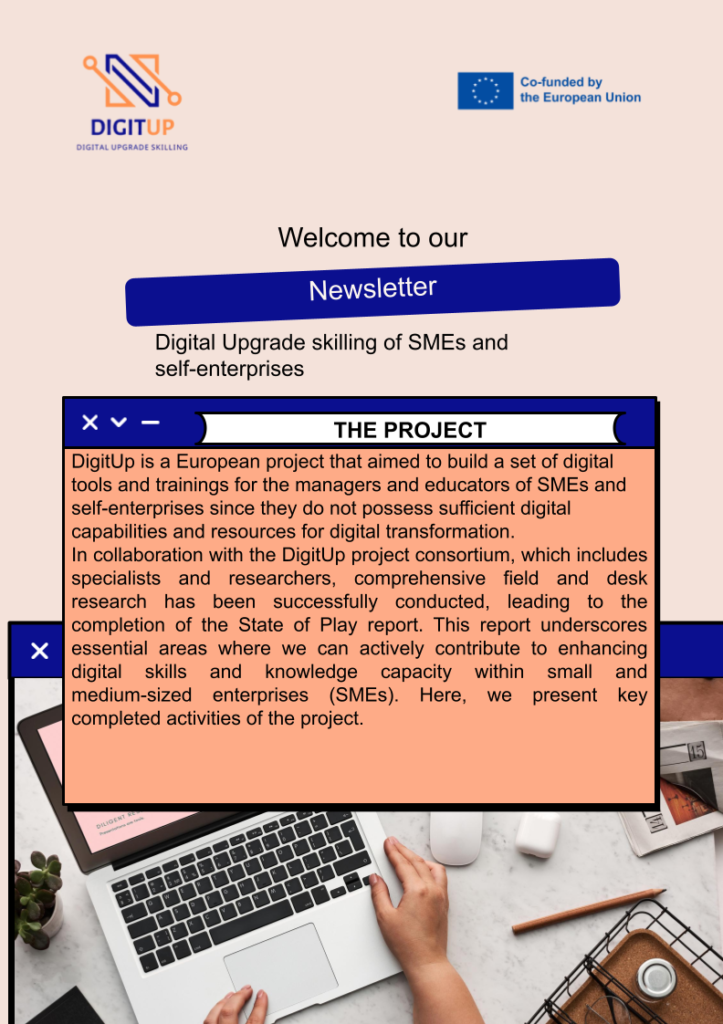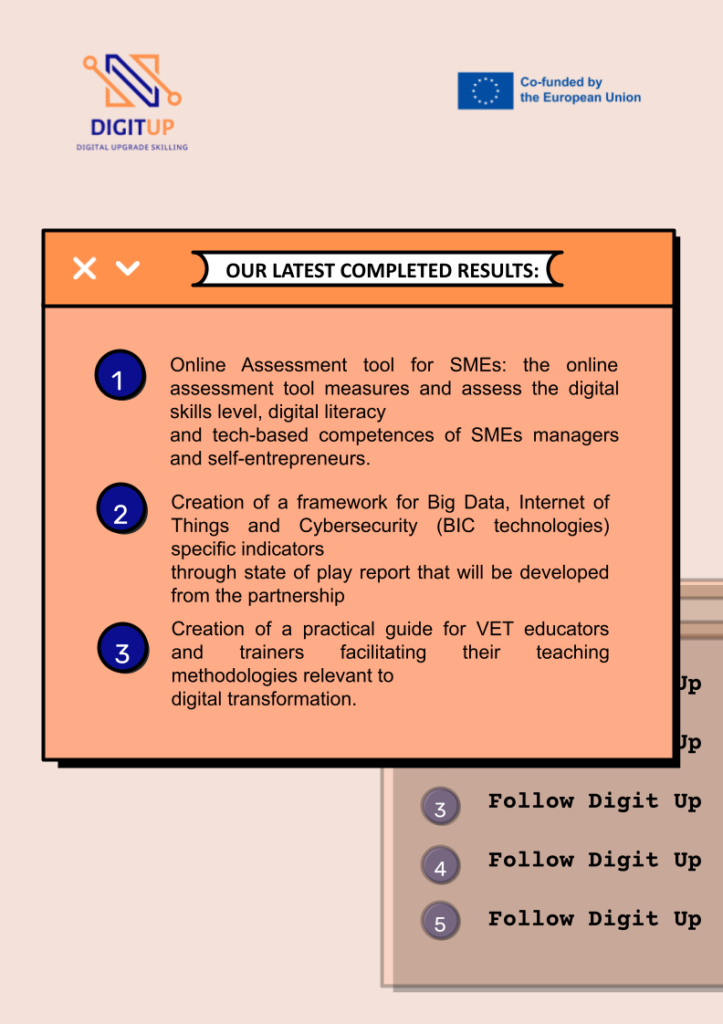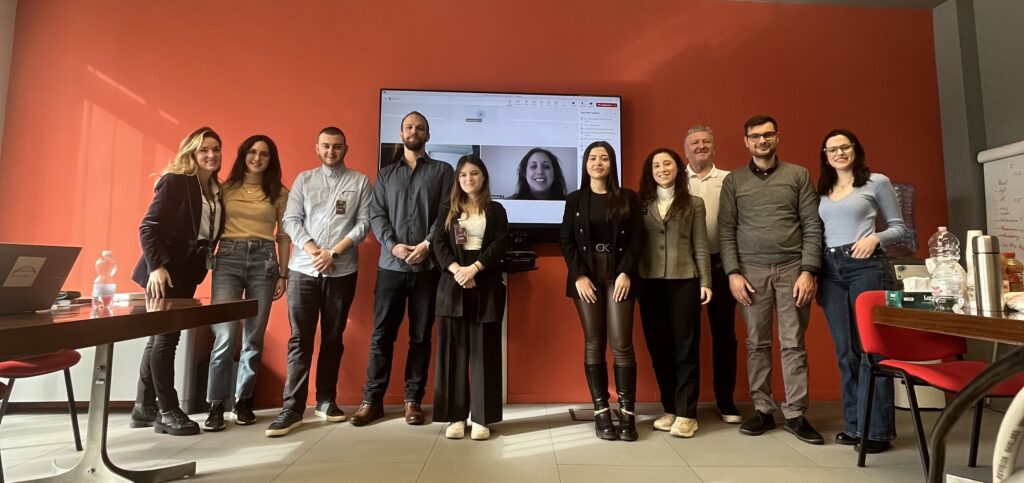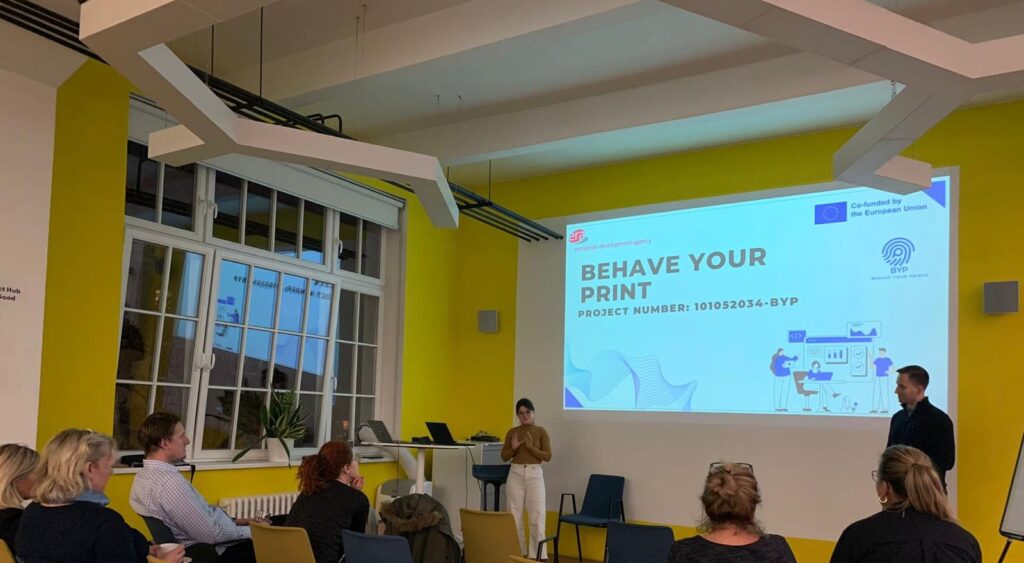





Podcast created within VET3D project with our hosts invites you into entrepreneurship, tells you the key aspects to think about when setting up a new business and the importance of a business plan
On the 26th of January 2024, the Consorzio di Ricerca Hypatia organized the second Transnational Project Meeting (TPM) at the Agenzia Spaziale Italiana located in Rome. The participating partners were able to provide their insights and perspectives, which contributed to the successful outcome of the meeting.




The multiplier event of the Smart and Skill project was organised by the European Development Agency on Monday, 22nd January 2024 in Prague. The audience was composed of teachers, people working in municipalities and some representatives of private organisations.
A detailed presentation of the project’s results and outputs was performed – incl. the digital didactic pills, training course kit for teachers and a handbook. These resources were specifically crafted to introduce and advocate for methods, technology tools, and materials that facilitate the integration of students with special educational needs in secondary schools.
As the project approaches its conclusion, all the outputs created by the consortium of partners are now available on the website: https://scoopsproject.com/

The multiplier event of the Behave your prints project was organised by the European Development Agency on Monday, 22nd January 2024 in Prague. The audience was composed of teachers, people working in municipalities and some representatives of private organisations interested in the topic of digital footprints.
Lukas Barda, an expert specialising in IT literacy and conducting courses for schools on this subject, first gave a lecture on digital pitfalls for teachers, providing practical examples and insights into the children’s digital world. Following this, the outcomes of the Behave Your Prints project were presented in connection with the topics discussed by the expert to emphasise practical applications for responsible technology use. This included the introduction of all accomplished outcomes, such as tools and educational materials, designed to raise awareness about our digital footprint.
The aim was to equip participants with the knowledge and insights into tools that promote a secure and responsible digital presence.
As the project approaches its conclusion, all the outputs created by the consortium of partners are now available on the website: https://byp.edukopro.com/

Programming is an amazing tool that affects our daily lives in many ways. Computers have become a part of not only almost everyone’s work life, but also almost every other aspect of life such as entertainment, health, finance, shopping, travel, etc. Without even thinking about it, computers are hidden in our phones, watches, cars, home appliances, entertainment systems and our work tools.
There is a growing demand worldwide for skilled workers who can program computers. The gap between demand and supply is widening every year. Many young people would like to learn how to code, but are struggling with a lack of teachers to support and guide their learning. Thus, a large number of young people teach themselves a programming language. However, students in training are missing out on this opportunity due to the lack of teachers.
With this series of instructional videos, we want to offer teachers to acquire programming skills in the easiest way possible. At the same time, we want to draw attention to the fact that programming is not part of the compulsory curriculum in many EU countries. Teachers will be able to learn the basics of programming in small learning blocks of 5-10 minutes each, with the aim of gaining solid skills in the Python programming language. Teachers can also apply the exercises that form an integral part of the video courses to teaching across subjects.
The videos allow you to learn basic solid skills on your own, but they are also designed to teach programming to your students. The video series will even help you to write code yourself and feel confident enough to teach your students to write code and explain its practical usefulness. We’d also like to help you incorporate small coding tasks into regular lessons in various school subjects.
We hope you enjoy our video series. In any case, we would be very grateful for feedback to help us improve the tutorial videos as needed.
Thank you for your efforts to offer more opportunities to the next generation, we truly appreciate educators like you who contribute to a better and more enjoyable education.
YouTube channel of the project: https://www.youtube.com/@ingeniousCoding
Regarding the progress made within Smart and Skills PR3, project partners have agreed on the structure of the result and they are proceeding with the division of tasks. Smart and Skills PR3 consists of a manual for the production of “digital tools on life skills for cooperative learning”. By publishing in this manual how to carry out the activities step by step, it aims to spread the experience to countries and schools that haven’t taken part in the project.
Smart and Skills PR2 “Training course kit for teacher”, which plans for the elaboration of a curriculum is being evaluated by teachers. The teachers involved will be subjected to a submission of a questionnaire created specifically for obtaining quality feedback on the course, in which points of strength and criticality will be highlighted, after the classroom experimentation. The latter is based on life skills with a methodology focused on microteaching and interdisciplinary small units.
Smart and Skills PR1 is about to be piloted in school, in Prague. Experimentation in the classroom is a fundamental and necessary step to verify the degree of usability of the didactic materials and any progress made by students, in particular by the SEN ones (student with special necessities).
As a reminder, Smart and Skills PR1: “Digital Didactic Pills” has for purpose of providing teachers with engaging digital materials targeted especially for students with special needs, and to be used for cooperative learning.